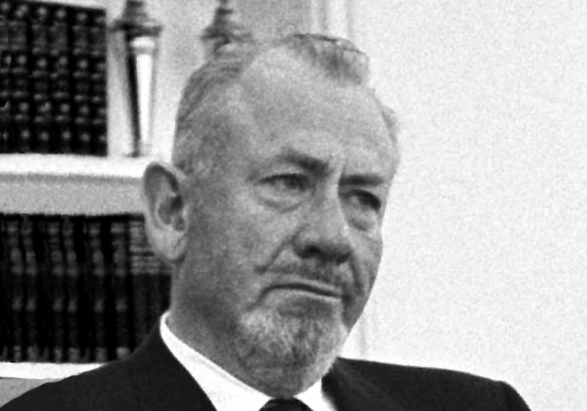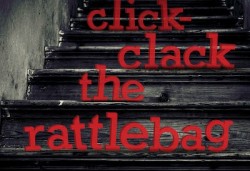
Image via Wikimedia Commons
In an article originally published in book collector’s journal Firsts Magazine, bookseller James M. Dourgarian includes a set of records called “The Columbia Literary Series” (1953) as an essential part of the “completist’s Steinbeck collection.” Dourgarian describes the set, valued at $1,500 in 2007 thus:
The Columbia Literary Series is a great item, a set of 12 12-inch records with a variety of authors reading selections from their works. It was issued in an educational edition with a double sliding case, and a deluxe edition housed in a black leather attaché case with snaps. Both issues included a booklet about the making of the series, which was edited by Goddard Lieberson. The Steinbeck record has the author himself reading two of his most famous short stories, “The Snake” and “Johnny Bear.” Other authors in the series are William Saroyan, the three Sitwells, John Collier, Edna Ferber, Truman Capote, W. Somerset Maugham, Christopher Isherwood, Katherine Anne Porter and Aldous Huxley.
You can hear Steinbeck’s A‑side contribution to this illustrious series below, where he reads “The Snake,” a story he says “isn’t a story at all. It’s just something that happened.” Also in his brief introduction, the author describes his favorite piece of fan mail ever, from a small-town librarian who wrote that “The Snake” was “the worst story she had ever read anywhere. She was quite upset at its badness.”
On the B‑side, above, Steinbeck reads “Johnny Bear,” a story about “a monster,” who “really lived in central California.”
The stories are now added to our collection, 1,000 Free Audio Books: Download Great Books for Free.
Looking for free, professionally-read audio books from Audible.com? Here’s a great, no-strings-attached deal. If you start a 30 day free trial with Audible.com, you can download two free audio books of your choice. Get more details on the offer here.
Related Content:
“Nothing Good Gets Away”: John Steinbeck Offers Love Advice in a Letter to His Son (1958)
John Steinbeck’s Six Tips for the Aspiring Writer and His Nobel Prize Speech
Rare 1959 Audio: Flannery O’Connor Reads ‘A Good Man is Hard to Find’
Josh Jones is a writer, editor, and musician based in Washington, DC. Follow him @jdmagness





